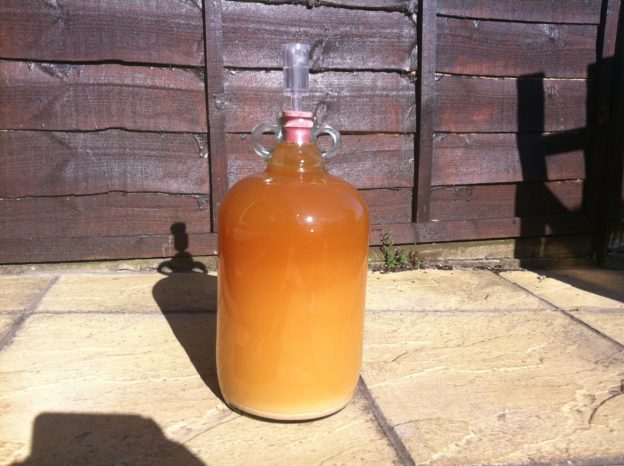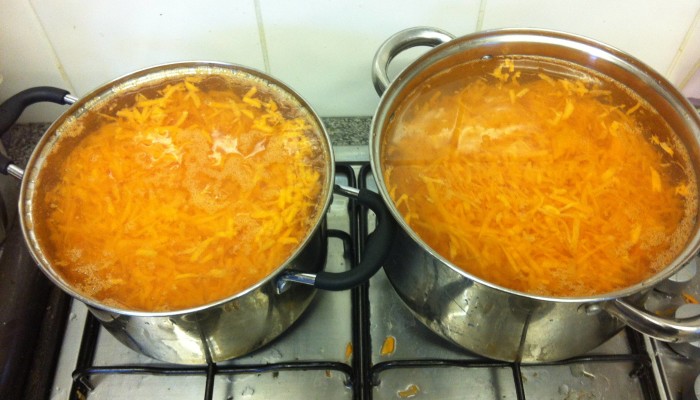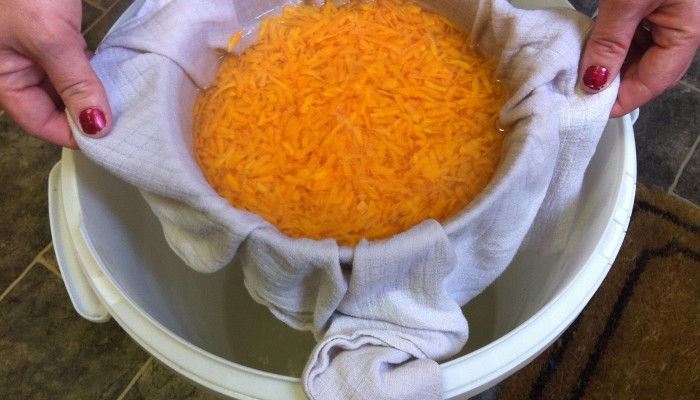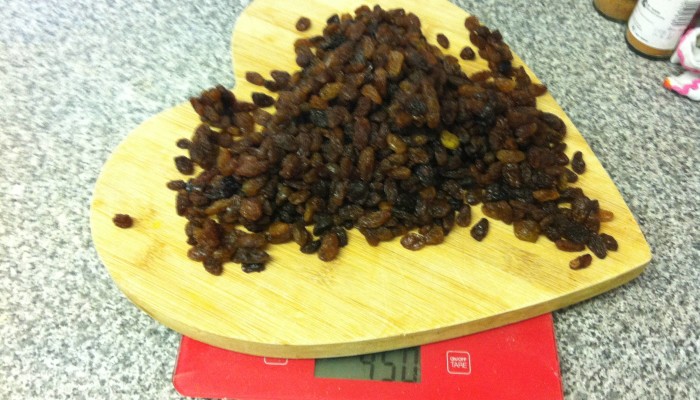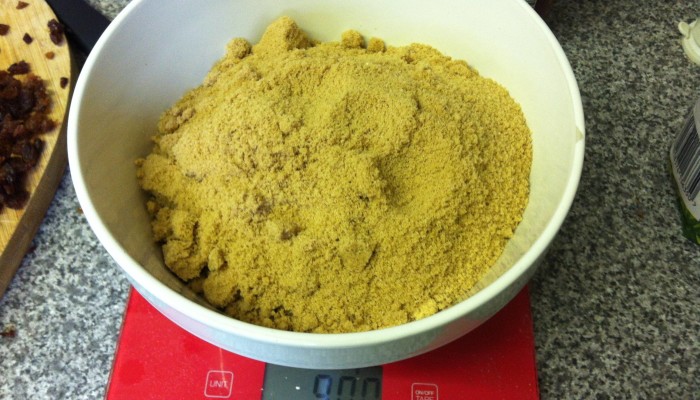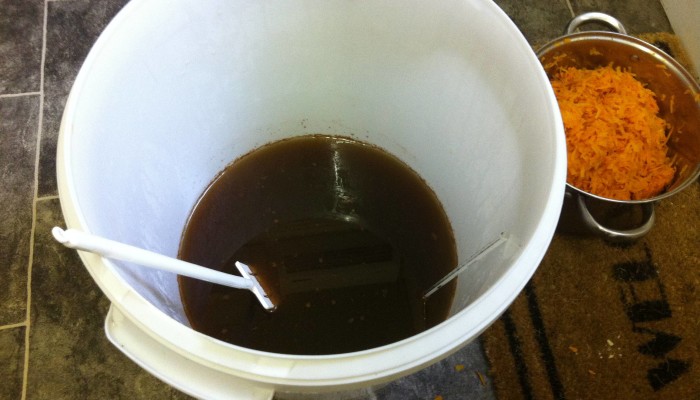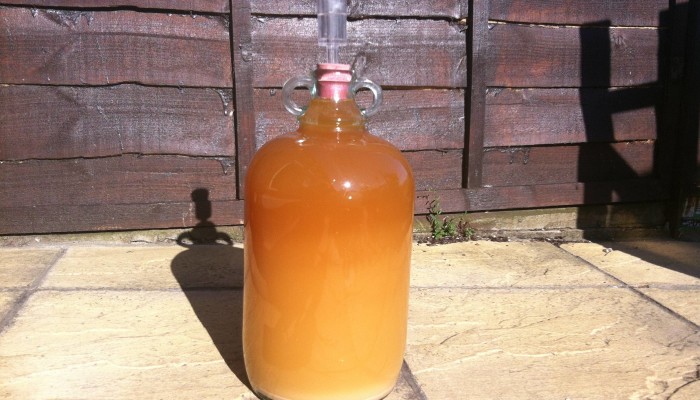I’ve never made carrot wine before, but I have been tempted. I was recently passing a farm that was selling feed carrots for £1.50 a net. I decided to invest this small sum and try to put the carrots to the best use I could. The majority were used as food, but I thought being in possession of so many small and forked carrots was the perfect excuse to give carrot wine a try. I searched online and found a recipe that was being raved about. Generally I refer to Brian Leverett’s Winemaking Month by Month book for all things winemaking. However, since the person posting this recipe gave it such a glowing review, I decided to basically follow his recipe.
The recipe called for the carrots to be grated, but I did read other recipes that said that chopping was better, as grated carrots result in a scum forming during fermentation. However, since the recipe said to boil and strain the carrots, therefore making the wine from the water the carrots were boiled in, rather than putting the carrots themselves into the must, I decided to stick with the recipe. After all, if we were only using the carrot water, then grated carrot equals a greater surface area of contact.
We used to do a lot of homebrewing. For a few months in 2009, my dad used to come round twice a week to brew with us. We still have many of the fruit wines we made back then. We made so many bottles that we’ve not found occasion to drink them all yet. That and the fact that we had mixed results when it came to flavour. One sip of 2009’s elderflower and peapod wine is enough for anybody. It certainly wasn’t a good year for that. This carrot wine is the first thing we’ve brewed since 2011, it’s certainly been fun to get back into it again.
We put the fermenting bin in our bedroom, as this is the room the kids are least likely to go into. It was with a real sense of nostalgia that I walked into our bedroom on the wine’s second day of fermenting and got a strong whiff of the yeast working its magic. We left it the best part of a week and then transferred it to a demijohn. The must had been a dark colour from the moment the sugar was added, but after a week it had turned orange. I had a sip from the little we had left over in the fermenting bin, but it mainly tasted of alcohol. Time will tell whether this is a process worth repeating. I’ll post back when the results are in.


